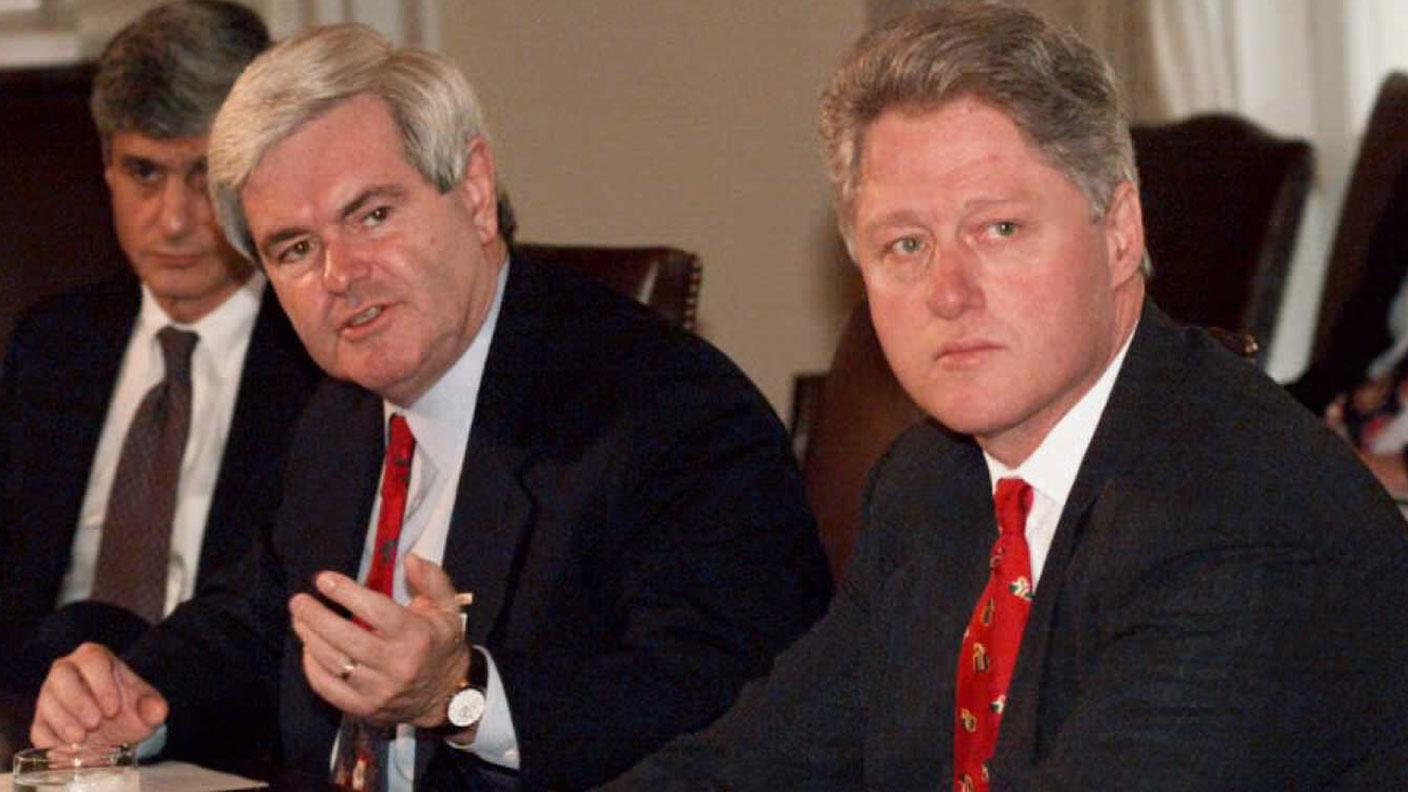14 November 1995: US government shuts down
On this day in 1995, the US government shut down museums and national parks after Bill Clinton and Congress were unable to agree on a budget.


Get the latest financial news, insights and expert analysis from our award-winning MoneyWeek team, to help you understand what really matters when it comes to your finances.
You are now subscribed
Your newsletter sign-up was successful
Want to add more newsletters?
In the 1994 American mid-term elections, the Republicans gained control over both Houses of Congress, putting them on course for a collision with US President Bill Clinton, a Democrat. Clinton was willing to let them have their way on a variety of issues, such as tougher sentencing laws.
But he felt their demand for large spending cuts would hit the economic recovery and was also concerned about the impact on health and pension entitlements.
Despite several attempts to broker a deal, the president and Congress were unable to pass a budget in October 1995. They could only achieve a resolution that allowed the government to operate until 14 November.
Try 6 free issues of MoneyWeek today
Get unparalleled financial insight, analysis and expert opinion you can profit from.

Sign up to Money Morning
Don't miss the latest investment and personal finances news, market analysis, plus money-saving tips with our free twice-daily newsletter
Don't miss the latest investment and personal finances news, market analysis, plus money-saving tips with our free twice-daily newsletter
When this expired, the government was forced to shut down services such as museums and national parks. The first shutdown lasted for only five days, but the failure of further negotiations led to a second 21-day shutdown that began on 16 December.
The Republicans hoped that the shutdown would hurt Clinton, but polls showed that most voters blamed them. Matters were made worse when Newt Gingrich, the speaker of the House of Representatives, complained about Clinton snubbing him on a flight to Israel.
This gave the impression that Gingrich was shutting down the government out of spite. When a budget finally passed in early January, Clinton got most of the credit. Overall, the crisis is credited with helping him win the 1996 election comfortably.
However, while the shutdown hurt the Republicans in the short term, the final deal led to a decline in government spending. This partial victory may have inspired them to shut down the government for 16 days in October 2013.
Get the latest financial news, insights and expert analysis from our award-winning MoneyWeek team, to help you understand what really matters when it comes to your finances.

-
 Has the market misjudged Relx?
Has the market misjudged Relx?Relx shares fell on fears that AI was about to eat its lunch, but the firm remains well placed to thrive
-
 Dario Amodei: The AI boss in a showdown with Trump
Dario Amodei: The AI boss in a showdown with TrumpAnthropic’s CEO Dario Amodei was on an extraordinary upward trajectory when he found himself on the wrong side of the American president. He is about to be severely tested.
-
 31 August 1957: the Federation of Malaya declares independence from the UK
31 August 1957: the Federation of Malaya declares independence from the UKFeatures On this day in 1957, after ten years of preparation, the Federation of Malaya became an independent nation.
-
 13 April 1960: the first satellite navigation system is launched
13 April 1960: the first satellite navigation system is launchedFeatures On this day in 1960, Nasa sent the Transit 1B satellite into orbit to provide positioning for the US Navy’s fleet of Polaris ballistic missile submarines.
-
 9 April 1838: National Gallery opens in Trafalgar Square
9 April 1838: National Gallery opens in Trafalgar SquareFeatures On this day in 1838, William Wilkins’ new National Gallery building in Trafalgar Square opened to the public.
-
3 March 1962: British Antarctic Territory is created
Features On this day in 1962, Britain formed the British Antarctic Territory administered from the Falkland Islands.
-
10 March 2000: the dotcom bubble peaks
Features Tech mania fanned by the dawning of the internet age inflated the dotcom bubble to maximum extent, on this day in 2000.
-
9 March 1776: Adam Smith publishes 'The Wealth of Nations'
Features On this day in 1776, Adam Smith, the “father of modern economics”, published his hugely influential book The Wealth of Nations.
-
 8 March 1817: the New York Stock Exchange is formed
8 March 1817: the New York Stock Exchange is formedFeatures On this day in 1817, a group of brokers moved out of a New York coffee house to form what would become the biggest stock exchange in the world.
-
7 March 1969: Queen Elizabeth II officially opens the Victoria Line
Features On this day in 1969, Queen Elizabeth II took only her second trip on the tube to officially open the underground’s newest line – the Victoria Line.